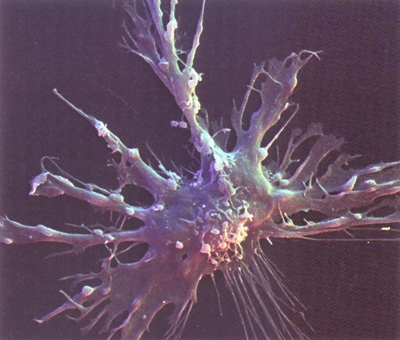Two presentations on Emory research at last week’s AIDS Vaccine 2010 conference concerned adjuvants. These are substances that act as amplifiers, stimulating the immune system while keeping its focus on the specific components of a vaccine.

Charlie Janeway (1943-2003)
Immunologist Charlie Janeway once described adjuvants as immunology’s “dirty little secret,” because for a long time scientists did not know how they worked. Some adjuvants can sound irritating and nasty, such as alum and oil emulsion. Alum is the only vaccine adjuvant now licensed for human clinical use in the US. Over the last few years, scientists have learned that adjuvants rev up what is now known as the “innate immune system,” so that the body knows that the vaccine is something foreign and dangerous.
Rama Rao Amara, a vaccine researcher at Emory Vaccine Center and Yerkes National Primate Research Center, and Harriet Robinson, former head of microbiology and immunology at Yerkes and now chief scientific officer at the firm GeoVax, both described extra ingredients for the DNA/MVA vaccine that Robinson designed while at Yerkes in collaboration with NIH researchers.
Both are being tested in rhesus macaques, which were then challenged with multiple low doses of HIV’s cousin SIV. If the adjuvants are effective, the macaques’ immunity should be stronger and more of them will be protected from the virus.
Amara described the adjuvant CD40 ligand, supplied as an extra gene in the DNA portion of the vaccine. CD40 ligand, a stimulatory molecule usually found on the surfaces of immune cells, appears alongside viral antigens on “virus-like particles” produced by cells that take up the vaccine, Amara says.
The experiments Robinson reported used a gene directing cells to produce GM-CSF (granulocyte-macrophage colony stimulating factor), which is supposed to activate dendritic cells.

Dendritic cells connect the innate and adaptive arms of the immune system
Dendritic cells are especially important targets for adjuvants, because they act as the hinge between the innate and the adaptive immune systems. They pick up foreign substances and instruct T cells and B cells whether to get excited or not.


